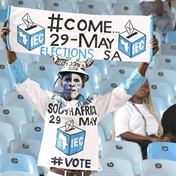
The Covid-19 coronavirus pandemic has highlighted the connection between the health of the society and the economy.
As health experts, we are hoping for a reduction in the number of new Covid-19 infections and reinfections, which has a direct relationship with the number of fatal outcomes.
Vaccine hesitancy is a global problem, and its threat cuts across different industries and sectors.
A study conducted by International Labour Organisation (ILO) revealed that global working time dropped by 17.3% in the second quarter of 2020 compared with 2019.
This translates to 495 million full-time jobs.
StatsSA reported that 648 000 jobs were lost in the second quarter of 2020 in South Africa.
A 15-country survey conducted by market research Ipsos in December 2020 indicated that South Africa was in the bottom two countries where adults would accept a Covid-19 vaccine when it becomes available.
South Africa had showed an acceptance rate of 53% compared with Brazil (78%), China (80%) and Russia (43%).
Both South Africa and Russia had the highest respondents against the vaccine in general, 23% and 26% respectively.
Worryingly, South Africa had the highest drop in the acceptance rate of 15 points between October and December 2020 threatening the goal of achieving the required population (herd) immunity.
It is critical that we economically link the impact of the pandemic to increased absenteeism, suboptimal workforce mental wellbeing, loss of experts, future cost of long Covid on the private and public health system.
According to the World Economic Forum, a “26% shortfall in vaccine confidence is significant enough to compromise the effectiveness of rolling out a Covid-19 vaccine”.
The country has reasons to be concerned about vaccine hesitancy and its threat to this vaccine roll-out programme’s success.
Individual decisions will significantly impact the nation’s pandemic health status, hence the need to have targeted communication that addresses the drivers of scepticism in the society.
We should not underestimate the possible impact of vaccine reluctance by health professionals who are citing concerns related to the rapid development of the vaccine and some questioning its efficacy.
Therefore, the country needs a vaccine communication strategy that targets specific groups of people and taking into account the different perspectives and triggers of scepticism.
Health happens outside the health system, and there is a link between health literacy and health outcomes.
A study published in 2019 estimated only 17.6% to have adequate health literacy among the South African public sector population.
Social media promises to be a great tool for health education and promotion; at the same time, the dark side of social media threatens public health interventions.
The proliferation of disinformation and the absence of coherent messages from policymakers undermines the objectives of vaccination.
Vaccine hesitancy calls for fostering public confidence by using multi-models for communication strategies, acknowledging the differences in health literacy in our society characterised by inequality and varied belief systems.
We have to recognise that people receive and process information differently, hence ensuring that the messages are tailored to different target groups and taking into account group-specific ease of access to such credible information.
Vaccine messages have to come from people trusted by the communities, and these include employers, church leaders, indigenous healers, traditional leaders and various community leaders.
Robust scientific and ethical inputs should consider the socioeconomic, religious, education, and cultural contexts.
The re-emergence of conspiracy theories and pseudoscience linking the vaccine to the microchips and 5G technology threatens the fight against the pandemic and reflects the health literacy challenges.
Read | Covid-19 vaccine: Fear and conspiracies grip the nation
Health communication should be crafted from the target audience’s perspective, embrace their fears, and social construction of the pandemic.
It is crucial to ensure inclusivity in the vaccine communication strategy to facilitate a broader reach and public participation.
Broader participation will facilitate transparency and trust-building in the vaccine roll-out programme.
The mechanisms for collaboration and exchange of information with the target audience – for example, question-and-answer forums – must be put in place.
Policymakers, public health experts and other stakeholders ought to acknowledge the impact of the digital divide.
The digital divide enables the exclusion of some community members from these critical two-way conversations – new ways of engaging communities whilst maintaining physical distance need to be explored.
There is no doubt regarding the role of academics, business, and innovators’ role in addressing this challenge.
Open and transparent conversations about the importance of vaccination and keeping a database of vaccinated people will foster goodwill, trust amongst the population and enhance solidarity by contributing to the knowledge commons.
Health decisions need to be informed hence the need to provide information to facilitate the understanding of the benefits and risks of taking or deferring the vaccine at the individual and country level.
Critically, the need for solidarity should be elevated and linked to the community’s benefits.
Vaccination will protect high-risk individuals, secure workforce’s productivity, and reduce the impact on the economy and job losses.
The country is also facing a mental health crisis resulting from the pandemic’s impact on families, communities, health worker capacity, and livelihoods.
Messages have to connect with the people’s hearts by using stories, which use personal experiences to give meaning to the science.
Vaccines have been around since 1784, when the smallpox vaccine was developed. Sentiments about vaccine scepticism are not new.
Data from the UK has shown a decline in childhood vaccination for five years in a row.
The vaccine scepticism was ranked amongst the top ten threats to health in 2019.
The UK’s hesitancy resulted in a spike in cases of measles and mumps over the years, and these are preventable by the MMR vaccine.
Covid-19 is becoming a growth opportunity for anti-vaxxers due to uncertainty, perceived threats and the viral spread of misinformation on social media.
Scientists, health sciences institutions, students and professionals need to have a digital presence to provide credible information about the vaccine proactively.
The trust between science and the society needs rebuilding using various communication tools and communication experts to combat disinformation and conspiracy theories.
Read: Information failures in the time of Covid
Covid-19 knows no social status nor racial group, hence the need for everyone to be provided with information relevant to them and in a language and manner facilitating effective health promotion and education.
It is paramount to reiterate that no one is safe until we are all safe; building trust in the vaccine is too enormous a task for government alone.
Mechanisms and platforms for people and organisations who’d like to mitigate vaccine hesitancy must be created and communicated openly.
The collaboration will enhance a bottom-up and multisectoral approach required to save our nation and its economy.
The article is written by a group of public health and bioethics practitioners in their personal capacity – Brenda Kubheka (Dr) , Esther M. Muiruri (Dr), Moteka Matloa (Dr), Fikile Mnisi (Dr), Alisha Naidoo (Dr), Nomfundo Maseko (Ms)
| ||||||||||||||||||||||||||||||
 |




 Publications
Publications
 Partners
Partners










